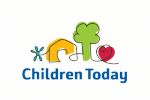|
Infant Program
Our infant program serves children from six weeks to 18 months. We have a ratio of one teacher to three infants. |
Toddler Program
Our toddler program serves children from 18 months to three years. We have a ratio of one teacher to four toddlers. |
Preschool Program
Our preschool program serves children from 3 to 6 years of age. We have a ratio of one teacher to six preschoolers. |
WHEN A CHILD ENROLLSWhen a child first starts coming to our child development program, he or she is assigned a primary caregiver. That teacher is responsible for ensuring that the child's social, emotional, physical, and educational needs are met. Within the first few weeks of enrollment an individualized plan is developed based on the child's unique history and interests. During this time, the primary caregiver is nurturing this new relationship to help that child develop a safe and secure attachment to him or her. Attachment is a theory concerned with the bond that develops between child and caretaker that allows the child to build a sense of security in the world. Children who have experienced trauma have a susceptibility to attachment disorders, either becoming overly trusting of any adult, or incapable of being separated from their parent. Children and their primary caregivers develop a consistent, predictable routine. They eat meals together, play together, and the caregiver makes sure basic needs, like toileting, hygiene, and napping, are met. |
THE RIGHT ENVIRONMENTTeachers work hard to set up the right learning environment. Using the Highscope Curriculum, a well-respected early childhood education curriculum that emphasizes children's "active participatory learning", as well as the California Department of Education's Desired Results Developmental Profile, teachers:
|
